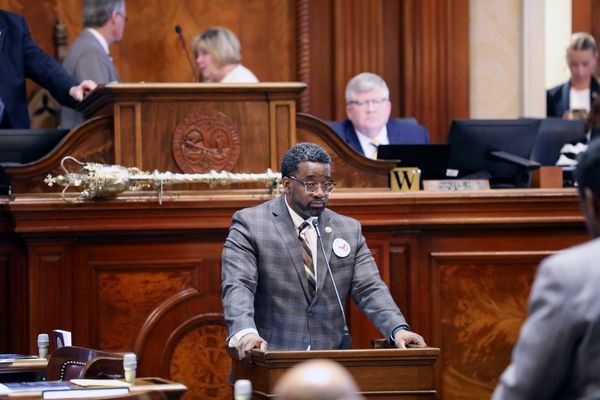GameStop (GME) posted a wider-than-expected fourth quarter loss Thursday, even as revenues topped Street forecasts, as the video game retailer continues its e-commerce pivot under chairman Ryan Cohen.
GameStop said its loss for the three months ending on January 29 was pegged at $1.86 per share, well behind the Street consensus forecast of a profit of 84 cents per share and down from a profit of $1.34 per share over the same period last year.
Group revenues, GameStop said, rose 6.2% to $2.254 billion, topping analysts' forecasts of a $2.125 billion tally, thanks in part to new brand relationships with Alienware, Corsair and Lenovo.
GameStop said it ended the quarter with $1.27 billion in cash and just over $915 million in inventory as it front-loaded investments to meet consumer demand over the holiday season while mitigating supply-chain bottlenecks. The group had negative free cash flow of $131.6 million over the fourth quarter, compared to a positive flow of $137.4 million over the same period last year.
GameStop shares were marked 9.3% lower in after-hours trading immediately following the earnings release to indicate a Friday opening price of $79.50 each, a move that would extend the stock's year-to-date decline to around 48%.
The group, which has put in place a new management team under Cohen, has yet to fully articulate its new strategy, and has largely kept its post-earnings updates limited to a brief statement on customer trends and the state of its balance sheet.
That said, the Grapevine, Texas-based group essentially confirmed reports that it plans to develop a market for so-called NFTs, or non-fungible tokens, related to its video game products, following a tie-up with Australian blockchain startup ImmutableX last month and the launch of a dedicated website last year.
It said today that it plans to launch its NFT marketplace by the second quarter of the current fiscal year.
Chainalysis, a blockchain data platform, recently estimated the global value of NFT trading at around $41 billion.
GameStop may also unveil new pacts with crypto currency groups as it pivots towards an e-commerce lead strategy under CEO Matt Furlong, a former Amazon AMZN executive.







